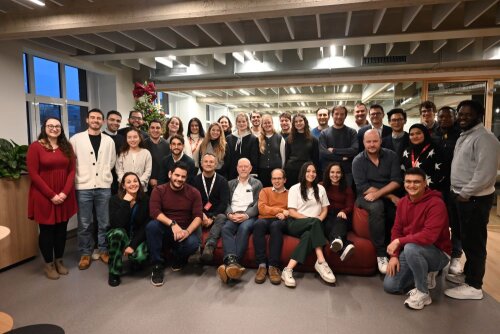
Mission
TPR is committed to be an international centre of excellence for fundamental and applied academic training, research and service provision in transport economics, logistics and regional economics. Its mission is to enhance transport and logistics for our society and the business community. It contributes in developing activating, student-centred and competence-driven programme components and study programmes of the Faculty Business and Economics and advanced master's programmes within C-MAT, inclusive master classes, taking future challenges into account. Its research results in theories, innovative and sustainable applications and instruments to enhance existing academic knowledge, transport policy and supply chain environments. Therefore, TPR conducts innovative and multi/inter- disciplinary research within an international context and organizes educational programs from bachelor up to PhD level TPR pursues results that are academically sound, economically viable and supporting sustainable development. It values a critical and an independent approach and an open communication. TPR’s research activities unfold within a framework of programs stimulated by the university, public authorities at all policy levels, non-profit organizations as well as private or semi-private actors.
Researchers and Members
Discover the full list of our researchers and members.
Research Promotors
- Joris Beckers
- Sven Buyle
- Elnert Coenegrachts
- Wouter Dewulf
- Roel Gevaers
- Peter Shobayo
- Christa Sys
- Thierry Vanelslander
- Edwin van Hassel
Research Outline
Project research plays a key role in gaining scientific knowledge. The Department aims at a wide array of research projects, incorporating longer term fundamental research projects, as well as contracts with diverse promotors and limited assignments intended for immediate application. Business knowledge also involves to a large extent policy advice, consulting and individual research of the Department members. This way, in the past years, a lot of research was performed for companies, and high-standing research was done into the evaluation of transport investments, mobility policy, tourism, all transport modes, and spatial aspects and city policy.
The lines of research pursued by the Department of Transport and Regional Economics are located on the interface of general and business economics. The rich set of tools that the fields of transport and spatial economics offer are apparent in the broad range of research procedures applied. These include strategic analyses, methods of economic research and assessment, information gathering and analysis, model-based analysis, forecasting and simulations.
The research activities unfold within the framework of programmes instigated by the university and the authorities (regional, federal and European) as well as specific assignments from the public and private sectors. The topics covered relate to:
The interaction between transport and economics
- the relationship between economic growth and transport demand
- demand models and elasticity calculations
- research into the effectiveness of measures within the frame of a sustainable mobility policy ( transport planning by companies, road charging, etc.)
Freight transport
- mode choice
- the organization, choice and planning of commodity flows
- land transport: intermodal operations, rail, road haulage, inland navigation and pipelines
- cross border e-commerce and worldwide ecosystems
- pharma logistics
- transport and logistics
The port and maritime sector
- competition and cooperation in the maritime and port sector
- ports as nodes in the logistics chain
- productivity of terminals
- maritime transport costs
- port policy
- strategic planning in seaports
- traffic forecasting
The air transport business and markets
- airport competitiveness
- airline operations
- air transport cost structures
- pricing in aviation and regulation of airport and air transport markets
- airline and airport strategy and policy
- economic impact of airports
Last-mile logistics and distribution
- last mile cost calculation
- urban logistics
- urban freight policy and planning
- consumer analytics
- innovative distribution strategies
- e-commerce & ecosystem impacts
The assessment of infrastructure projects
- the development and improvement of project assessment tools (e.g. cost-benefit analysis, economic effectsanalysis, multicriteria analysis)
- applications to road construction projects, port investments, etc.
Strategic analyses and policy recommendations (private companies, authorities)
- analysis of the competitive strength of (sub)sectors
- development of action plans and formulation of concrete policy recommendations
- development of market studies relating to competition issues
- regulation and deregulation issues
- innovation
Interaction between transport and physical planning
- spatial (mobility) plans at local, regional and supra-regional level
- public transport policy
- new business models for micromobility
- the mobility budget and multimodal commuting
Urban studies and regional economics
- regional planning and policy
- commercial real estate markets (retail, logistics, offices)
- retail location modelling
Network
The Department in its entirety or its individual members are each affiliated to a large number of internationally acknowledged transport-related associations and / or institutions. The relationships involve teaching as well as research.
Furthermore, every year, a large number of guest professors have a stay at the Department for a short-term visit, during which they provide teaching as well as research input to the Department.